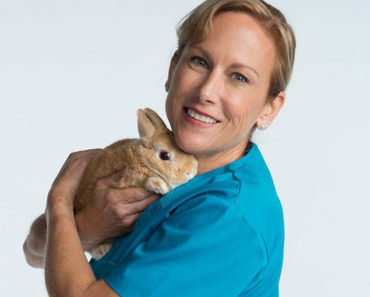Veterinary medicine typically deals with the care and treatment of pets, and other animals in general. How does it work? Well, typically, vets will look to examine, diagnose, and then treat any disorder or ailment they find in animals.
In some cases, they could even look into prevention, providing vaccines in these instances. Aside from this, veterinarians also deal with rearing issues, husbandry, and good nutrition as far as animals are concerned.
Recent studies have pointed to a problem that most of us were unaware of. Lately, there has been a growing mental health concern, particularly where vets are concerned. How can we help?
Veterinary medicine and mental health
It would not be an exaggeration to say that there is a present, and rapidly progressing mental health concern in veterinary medicine. The latest studies revealed that male vets are twice as likely to succumb to suicide than men in other professions.

It is a much severe case for female vets, who are 3.5 times more likely to off themselves than the average person. Even more worrying is the fact that a 2015 study conclusively determined that at least one in six vets have thought about killing themselves.
Why is this the case?
- Long working hours– One of the leading causes of mental health issues in the veterinary sector are long working days. It is common knowledge that there are not enough vets in countries like America. Because of this, the sector is heavily reliant on the few that are in operation. This leads to them working longer, without enough breaks in between, which is the perfect nesting ground for stress. A poor work/personal life balance will also undoubtedly lead to burn out, causing depression if left unchecked.
- Financial issues– Research shows that veterinary school is quite expensive. The latest estimates reveal that you’d need to pay up to $200,000 just to complete the courses and get certified. If you manage to scrounge enough money for college, you’d still have to contend with the fact that vets earn significantly less than other medical professionals. Left uncheck, this could lead to potential financial ruin, stress, and subsequent mental health problems.
- Dealing with difficult clients– Veterinary medicine is expensive, there’s no getting around that. But the price is tied to the cost of equipment, rather than the need to make a profit. Clients angered by the high cost of treatment for their pets tend to take their frustration out on vets by yelling, or even targeting them online.
- Coping with death– Most vets are familiar with the concept of euthanasia. They deal with the death of animals on a day-to day basis, which can be taxing on their mental health.
How can we help?
- Try to be considerate and understanding– It is important to support all the vets in your area, more so the ones you know. Consequently, you shouldn’t ask for free services or discounts when you take your pets to the vet. Plan ahead, and put some emergency funds in place so that your vet doesn’t have to bear the burden of poor planning.
- Be kind and treat your vet well– Though having an injured/sick pet can be stressful and scary, it is no reason to take your frustrations out on your vet. They are only trying to do their job. So you should always remember to be kind and appreciative when at the vets office. He/she might be having a hard day, so a word of encouragement or gratitude could go a long way.
- Support every vet you know- Remember to talk to frequently check up on your vet (especially if they are family members). In some cases, they could be dealing with unaddressed issues and emotions arising from their work.
- Talk about any good experiences you’ve had at the vet- Cyber bullying and online abuse has unfortunately become a norm in today’s world. As we have already mentioned, vets get targeted online for all manner of reasons. Talking about your positive experiences with them will help dispel some of this negative energy.
- Respect the profession- Avoid taking advantage of your vet by constantly seeking free advice online, or in person. You have to remember that this is their livelihood. Like everyone else, they need to put food on the table for their families. Moreover, vets need a break, just like you. When they go home, they want to spend time with their families, relax perhaps, and so you need to respect their working hours.
- Respect COVID 19 restrictions– It is fair to say that the pandemic left a long lasting effect on the industry. Regulations were put in place to curb the spread of the disease. Unfortunately, this made things harder for pet owners whenever they sought to see the vet. Staffing shortages also became an issue during this time. Rather than complaining, though, you should support the restrictions put in place to ensure everyone’s safety.






